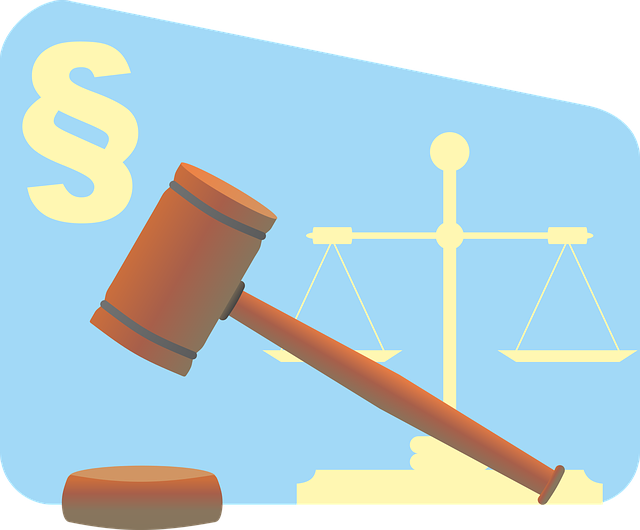Fraudulent financial practices pose significant risks, requiring robust defenses. The best self-defense tactics involve: staying informed about schemes, implementing internal controls & background checks, seeking legal counsel from white collar defense attorneys, conducting regular audits, fostering transparency, and documenting evidence strategically. Effective communication is key during trials, emphasizing clarity, specificity, and credibility to build a strong defense against criminal charges related to financial fraud.
Fraudulent financial practices pose significant threats, undermining trust and stability. This comprehensive guide delves into understanding various forms of financial fraud, from manipulation techniques to red flags that often go unnoticed. We explore legal frameworks designed to combat these practices, emphasizing the importance of early detection for robust self-defense. For criminal cases, documenting evidence effectively is crucial, while best practices for testimony offer strategies for clear communication. Discover essential tactics for your best self-defense in navigating complex financial scenarios.
- Understanding Fraudulent Financial Practices: A Comprehensive Overview
- Identifying Red Flags: Early Detection for Self-Defense
- Legal Frameworks and Regulations: Building a Strong Defense
- Documenting Evidence: Essential Tactics for Criminal Cases
- Best Practices for Testimony: Effective Communication Strategies
Understanding Fraudulent Financial Practices: A Comprehensive Overview

Fraudulent financial practices are a growing concern in today’s complex business landscape. Understanding these schemes is paramount for both corporate and individual clients seeking to protect themselves from white collar and economic crimes. From sophisticated accounting frauds to intricate money laundering networks, these illicit activities can have devastating consequences on individuals, businesses, and even entire economies.
By staying informed about the latest trends and tactics employed by perpetrators, corporate and individual clients can employ the best self-defense strategies in criminal cases. This includes implementing robust internal controls, conducting thorough background checks, and fostering a culture of ethical conduct. Additionally, seeking legal counsel from experienced white collar defense attorneys is crucial for navigating complex regulatory environments and ensuring the protection of one’s rights throughout any investigation or prosecution process.
Identifying Red Flags: Early Detection for Self-Defense

Recognizing fraudulent financial practices early is a powerful self-defense mechanism, offering individuals and businesses the best chance at mitigating potential damage in criminal cases. Vigilance is key; keeping an eye out for red flags can prevent becoming entangled in schemes that may have far-reaching consequences. From unusual transactions to mismatched signatures, these signs often indicate something amiss.
Understanding common fraudulent tactics, such as falsified documents or diversion of funds, empowers individuals to act swiftly. Staying informed about industry standards and best practices across the country is crucial; each respective business must be proactive in its defenses. By fostering a culture of transparency and regular audits, organizations can create a robust defense strategy against financial fraud, ensuring their integrity and protecting themselves from unfair jury trials.
Legal Frameworks and Regulations: Building a Strong Defense

In navigating the complex landscape of fraudulent financial practices, a robust legal framework serves as the best self-defense tactic for both corporate and individual clients facing high-stakes cases. Comprehensive regulations, such as those enforced by securities authorities and accounting boards, provide a safety net against deceptive strategies like embezzlement, insider trading, and falsified financial reporting. These rules not only outline clear guidelines for ethical conduct but also offer powerful tools for prosecution and civil litigation.
By staying abreast of evolving legal standards and seeking expert counsel from experienced general criminal defense attorneys, businesses and individuals can fortify their defenses. Proactive measures, including internal audits, stringent compliance protocols, and transparent financial reporting practices, further bolster against potential allegations. This multi-layered approach ensures that those accused of fraudulent activities have a strong foundation upon which to build their defense, ultimately mitigating risks in high-pressure situations.
Documenting Evidence: Essential Tactics for Criminal Cases

In financial fraud cases, documenting evidence is a pivotal self-defense tactic for individuals facing criminal charges. The best approach involves meticulously organizing and preserving all relevant documents, communications, and records that could either exonerate or mitigate the accused’s involvement. This includes bank statements, contracts, emails, text messages, and any other digital interactions related to the alleged fraudulent activities. By establishing a comprehensive paper trail, defendants can present a winning challenging defense and challenge the prosecution’s case.
For high-stakes cases with an unprecedented track record, legal teams must employ strategic documentation techniques. This might entail using secure cloud storage for digital documents, obtaining expert testimony on data forensics to validate the integrity of evidence, and ensuring that all paper records are properly authenticated. Such tactics not only bolster the defense’s case but also demonstrate a commitment to due process, making it harder for prosecutors to secure guilty verdicts.
Best Practices for Testimony: Effective Communication Strategies

In criminal cases involving fraudulent financial practices, such as white-collar and economic crimes, effective communication is key to presenting a strong defense. The best self-defense tactics include clear and concise testimony that provides specific details without unnecessary jargon. This strategic approach helps judges and juries understand complex financial schemes, ensuring the accused’s story resonates effectively.
When testifying, it’s crucial to organize thoughts logically, using examples and analogies where appropriate. Clearly defining terms related to white-collar defense and explaining how these practices were implemented across the country can significantly impact the case’s outcome. Maintaining eye contact and speaking at a moderate pace demonstrates confidence, enhancing the credibility of the testimony. Additionally, being open to questions and providing thorough responses showcases transparency, which is vital in building a robust defense strategy.
In navigating the complex landscape of fraudulent financial practices, understanding and arming ourselves with the right tools are paramount. From recognizing subtle red flags to adhering to robust legal frameworks, this comprehensive guide equips readers with essential knowledge for self-defense. Documenting evidence effectively and honing best practices for testimony further fortify our defenses in criminal cases. By embracing these best self-defense tactics, individuals can safeguard their financial integrity and navigate turbulent waters with confidence.






